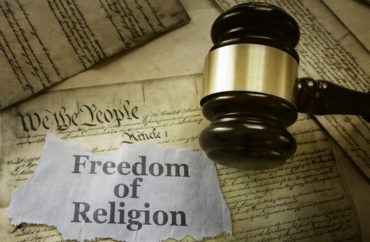
Two homosexuals lied to seminary
A coalition of more than 10 religious high schools, colleges and associations of varying beliefs have united to ask a federal court to protect Title IX religious exemptions.
The amicus brief, submitted on June 22, asked the 9th Circuit Court of Appeals to protect Fuller Theological Seminary’s right to exclude homosexual students from its seminary, aligned with the multidenominational seminary’s stance against gay unions.
Participants in the brief include Catholic Belmont Abbey College, the Lutheran Church-Missouri Synod, the American Association of Christian Schools and the Jewish Coalition for Religious Liberty.
The court has been asked to rule in Maxon v. Fuller Theological Seminary that the seminary’s exemption should not apply because it is independently operated and not operated by a larger religious organization.
The plaintiffs, Joanna Maxon and Nathan Brittsan, argue that because the seminary is independent of another religious organization, the exemption should not apply. Maxon and Brittsan were each in gay unions but hid the fact from university official.
The pair lost in a federal circuit court in California in October 2020. They also argued that Title IX applies here because if each had married someone of the opposite sex they would not have been expelled.
The brief said that all the schools and associations “are committed to the proposition that a religious educational institution remains fully entitled to religious freedom protections” which include the Title IX projections “when it chooses an organizational form that is independent or nondenominational.”
The law “exempts from liability any ‘educational institution which is controlled by a religious organization if the application of [Title IX] would not be consistent with the religious tenets of such organization.’”
However, the amicus brief argues that the “religious organization” can simply be the board of trustees that oversees that particular high school or college, for example.
Religious organizations have consistently had ability to hire, fire train their ministers
The plaintiffs’ argument “would create an official preference for religious schools that are owned and operated by religious denominations over those that are independent or nondenominational,” the brief said.
Secondly, the courts have consistently held that religious schools have a “ministerial exception” which allow them to have wide latitude in the hiring, firing and training of ministers.
This exception “should prohibit interference with a religious institution’s faith-based standards for ministerial job training.”
The court “can and should avoid these constitutional issues” by reinforcing that Title IX also applies to
“This Court can and should avoid these constitutional issues, by holding that the Title IX exemption includes independent and nondenominational schools “controlled by a governing board with a religious character or by a system of religious beliefs and practices.”
“Fuller Seminary unquestionably meets that standard,” the brief said.
MORE: Biden DOJ plans to defend Title IX religious exemptions
IMAGE: Zimmytws/Shutterstock.com
Like The College Fix on Facebook / Follow us on Twitter





Please join the conversation about our stories on Facebook, Twitter, Instagram, Reddit, MeWe, Rumble, Gab, Minds and Gettr.